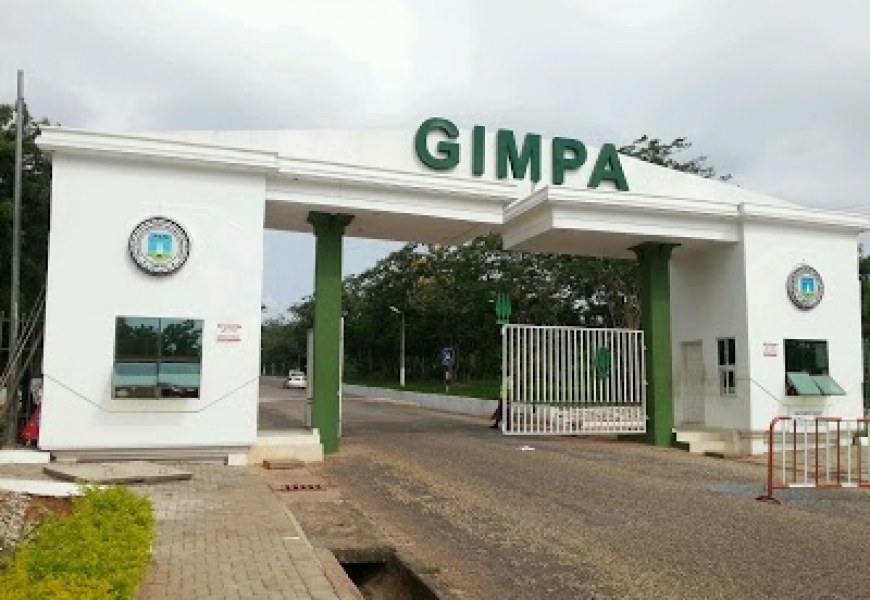Check out the 10 GIMPA Law conference recommendations for constitutional amendment
Panelists including Mr. Dennis Adjei Dwomoh, Managing Attorney, Law Plus, Mr. Nicholas Lenin Anane, Lawyer, Akufo-Addo, Prempeh & Co., and Diana Asonaba Dapaah, Deputy Attorney General & Deputy Minister of Justice of Ghana, were present to make justice to the various subthemes on their respective days

The GIMPA Law Conference took place at the Ghana Institute of Management and Public Administration (GIMPA) From the 14th to 16th of March 2023 on the theme; “The 1992 Constitution of Ghana @ 30: Taking Stock, Assessing Progress and Reflecting on The Future.”
The subthemes of the conference included but were not limited to the following: 30 Years of Multi-party democracy: Challenges and Prospects; The Economy and Financial Management in Ghana since 1993; Human Rights under the 1992 Constitution; Miscellaneous Constitutional Questions (including the political question doctrine); Management of Natural Resources under the 1992 Constitution, Women’s Rights and Rights of Persons with Disabilities.
Panelists including Mr. Dennis Adjei Dwomoh, Managing Attorney, Law Plus, Mr. Nicholas Lenin Anane, Lawyer, Akufo-Addo, Prempeh & Co., Mr. Joshua Godwin Kyeremateng(Esq), Mr. Clement Kojo Akapame, Mr. Reginald Nii Odoi, Assistant State Attorney, Mr. Edmund Nelson Amasah, Mr. Alexander Hackman-Aidoo, and Diana Asonaba Dapaah, Deputy Attorney General & Deputy Minister of Justice of Ghana, were present to make justice to the various subthemes on their respective days.
In all, the participants at the 2023 GIMPA Law Conference, recommended the following:
1. As a nation, we must embrace technology and its created systems as opposed to abandoning
the idea of incorporating technology as a part of our governance architecture, due to
foreseeable failures or challenges with technology that can be prevented and /or addressed.
2. Private prosecution of corruption-related offenses should be considered to help the State
fight corruption.
3. Article 181(5) of the 1992 Constitution should be seriously looked at as it seems not to be
serving the purposes for which it was enacted.
4. The provision on the prohibition of an unconstitutional overthrow of the Constitution should
be amended to explain what would constitute a suspension, an overthrow, or an abrogation.
5. We must consider a cap on the number of constituencies created as well as the number of
Members of Parliament as this would help ease the pressure on the public purse.
6. We must also consider returning to the 1979 Constitutional provisions on strict separation of
powers between the Executive and the Legislature so that a Member of Parliament cannot
be a Minister of State at the same time. This will help strengthen the institution of Parliament
to serve as a check on the Executive.
7. The Legislature in enacting or amending new or old laws regulating natural resources should
use as a blueprint, the law regulating the management of petroleum resources.
8. We should urgently take another look at the content of the Affirmative Action Bill to bring
its provisions in line with contemporary realities, as well as ratify the Protocol to the African
Charter on Human and People’s Rights on the Rights of Women in Africa (the Maputo
Protocol), and always make provisions for persons with disabilities in all our laws.
9. The process of enacting Executive instruments should be amended to include a process that
reflects the principle of checks and balances.
10. Discretionary powers of administrative bodies such as the Electoral Commission should be
carefully circumscribed.
In addition to the above, participants of the conference also made some observations including;
1. That our 30-year-old Constitution has been the basis upon which the administrative bodies of
the government has applied principles such as the Rule of Law, Constitutionalism, Separation
of Powers, Checks and Balances, and the promotion and protection of fundamental human
rights of the citizens.
2. That the Constitution is the supreme law of the land and all other arms of government or
persons are subservient to it.
3. That as a relatively young Constitution, there are certain necessary changes needed, as well
as better ways, the Constitution can be implemented.


